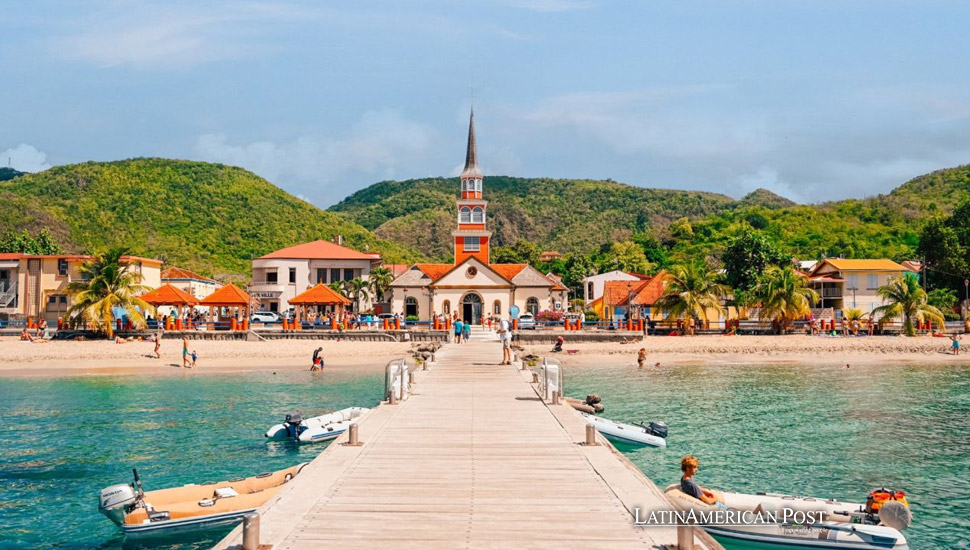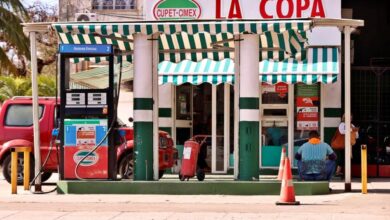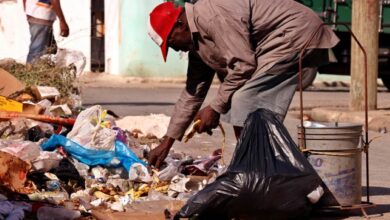Martinique’s Inflation Crisis: Why This Island Deserves More Attention

The people of Martinique are demanding attention as soaring inflation and the high cost of living have sparked widespread unrest. With violent protests disrupting daily life, it’s clear that economic instability on the island requires urgent and comprehensive solutions.
Inflation Is Devastating Martinique
Inflation has become a worldwide issue, but in Martinique, it has reached a boiling point. The island, a French territory in the Caribbean, is currently experiencing severe social unrest driven by the skyrocketing cost of living. While inflation impacts nations globally, the consequences on smaller, economically dependent islands like Martinique are far more intense. In September, protests erupted over the vast disparity between local food prices and those in mainland France, where food costs are up to 40% lower.
For many in Martinique, the current crisis is not just an economic issue—it’s a matter of survival. As prices continue to rise, protests have become more frequent and violent, culminating in storming the island’s international airport. This left passengers stranded, and flights rerouted to neighboring Guadeloupe. These protests signal the deeper issue: the systemic neglect of economic well-being in France’s overseas territories.
Martinique’s economic crisis isn’t an isolated incident; it is part of a larger narrative of inequality faced by France’s Caribbean territories. As the island burns with frustration, it’s time for the world to pay attention and acknowledge that economic stability is fundamental to peace and social cohesion.
The Cost-of-Living Crisis
The root cause of the protests in Martinique lies in the stark difference in living costs between the island and mainland France. While the people of Martinique are citizens of France, their reality is vastly different. Food prices are much higher than those in France, creating an environment where daily survival becomes a struggle. The Assembly for the Protection of Afro-Caribbean Peoples and Resources has demanded that the government equalize food prices with those on the mainland—a call that reflects the frustration of a population that has felt sidelined and ignored for too long.
For many island residents, the 40% difference in food costs is unacceptable, and they are right to demand change. As inflation surges globally, policymakers must recognize that the economic effects disproportionately harm smaller regions like Martinique. Inflation does not hit everyone equally, and islands like Martinique face added pressures due to their geographical isolation, reliance on imports, and systemic underinvestment from the mainland.
Rising prices affect individual households and destabilize entire communities in a territory of 350,000 people. When people can’t afford necessities, unrest is inevitable. The recent protests, which have seen barricades set alight and businesses looted, are symptomatic of a much larger problem: a chronic neglect of the economic needs of France’s overseas territories. The island demands more attention from both the French government and the international community.
The Need for Comprehensive Economic Reform
Martinique’s economy has long depended on imports, with most goods arriving from mainland France. This dependency has created a fragile economic system vulnerable to price hikes and disruptions in the global supply chain. While inflation is a worldwide issue, Martinique’s reliance on external sources of food and goods amplifies its effects. The disparity between local prices and those in mainland France directly results from this dependency, and the island’s population is now paying the price.
Addressing this crisis requires more than temporary fixes or superficial adjustments. The people of Martinique are not just asking for short-term relief; they are demanding long-term structural changes to the island’s economy. The French government must invest in production and reduce the island’s import reliance. By doing so, the islands can help stabilize prices and give the people of Martinique greater control over their economic future.
Economic reform in Martinique should focus on increasing local food production, improving infrastructure, and creating jobs. The French government is responsible for providing its overseas territories with the same level of support and opportunity as mainland regions. This is not a matter of charity—it’s a matter of equality and justice.
Moreover, the economic crisis in Martinique is not just about the cost of living. It’s about the island’s place within the broader French economy. The people of Martinique deserve to have their voices heard and an economy that works for them—not just for the mainland. Comprehensive economic reform must be the priority, not only to address the immediate crisis but also to prevent future unrest.
The Consequences of Neglect
The protests in Martinique are not just a response to rising prices; they reflect the population’s frustration with being ignored. For too long, the people of Martinique have felt like second-class citizens trapped in a system that does not serve their interests. The current unrest directly results from this feeling of neglect, and it will be resolved once the French government acknowledges and addresses the underlying issues.
The French Overseas Minister, François-Noël Buffet, has called for “responsibility and calm,” but his words ring good for many on the Island. Calls for calm are not enough when the population is suffering. The government’s response so far—curfews, bans on government gatherings, and the deployment of riot police—has done little to address the root causes of the unrest. If anything, these measures have further alienated the population and escalated tensions.
The situation in Martinique is a stark reminder that economic instability can lead to social unrest and that neglecting the needs of a population can have serious consequences. The current crisis should serve as a wake-up call for the French government. The island’s residents are demanding action, and if the island’s needs continue to be ignored, the consequences could be even more severe.
Economic neglect leads to a crisis of confidence in government institutions, precisely what we see in Martinique. The people have lost faith in the government’s ability—or willingness—to address their concerns. This lack of trust is dangerous, as it can lead to further unrest and destabilization. If the French government does not take immediate steps to rebuild this trust, the situation in Martinique could spiral out of control.
Listening to Martinique
It is time for the French government to listen to the people of Martinique and recognize that their economic grievances are legitimate. The protests are not simply the result of rising prices; they are the culmination of years of neglect and underinvestment. Addressing this crisis will require more than words—it will require action.
The solution must involve both short-term relief and long-term economic reform. In the short term, the French government should work to equalize food prices between Martinique and the mainland, as the Assembly for the Protection of Afro-Caribbean Peoples and Resources has demanded. This reasonable request could alleviate the immediate pressure on the island’s population.
In the long term, the government must invest in Martinique’s economy to reduce its dependence on imports and create a more stable and self-sufficient system. This could involve initiatives to boost local agriculture, improve infrastructure, and create jobs. Economic independence is the key to long-term stability, and it is the only way to ensure that the people of Martinique have a future in which they can thrive.
Most importantly, the French government must rebuild trust with the people of Martinique. This will require a commitment to listening to their concerns and addressing them meaningfully. The current crisis results from years of neglect and will not be resolved overnight. However, with the right approach, it is possible to create a path forward that benefits the people of Martinique and the broader French economy.
Also read: Bitcoin’s Struggles in El Salvador: Why Adoption Has Stalled
Martinique’s ongoing protests highlight the economic disparities that have long plagued the island. While inflation and the cost of living are the immediate catalysts for the unrest, the deeper issue lies in the French government’s neglect of its overseas territories. Economic stability is fundamental to the well-being of any population, and without it, social unrest is inevitable. The people of Martinique are demanding attention—and it’s time for the French government to act.




